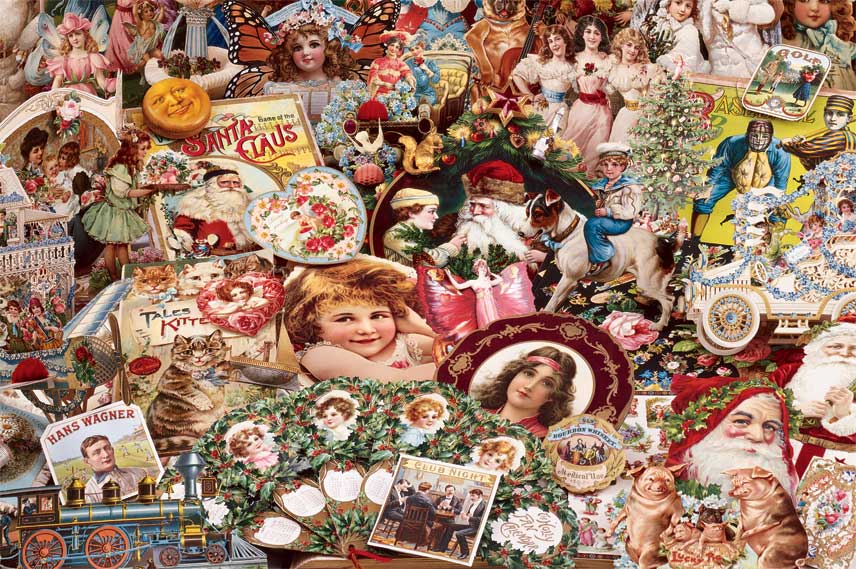|

Ephemera is the plural form of the Greek word
ephemeron which means something that lasts only a very short time. When applied to collectibles, ephemera refers to the minor
transient documents of everyday life that were intended to be used and generally expected to be discarded. Greeting cards,
product labels, tickets, calendars, invitations and paper dolls are classic forms of paper ephemera.
But not all ephemera
can be regarded as minor or even transient. Birth and marriage certificates, mourning cards, banknotes, sheet music, manuscripts
and bookplates are examples of ephemera with considerable importance to the user or owner. Baseball cards, holiday ornaments,
paper dolls and souvenir items are also considered ephemera, yet they were designed to be kept.
Some ephemera were
deliberately preserved in family albums or attic trunks because they were beautiful images, held sentimental value or marked
an event of historical importance. Tradecards, diecut scraps, invitations and newspaper articles are some examples. Still
other forms of ephemera were inadvertently saved by routine storage year after year. Billheads, catalogs and annual reports
come to mind. Whether by intention or accident, ephemera survive as treasures of material culture and as reminders of our
past and present history.
|
